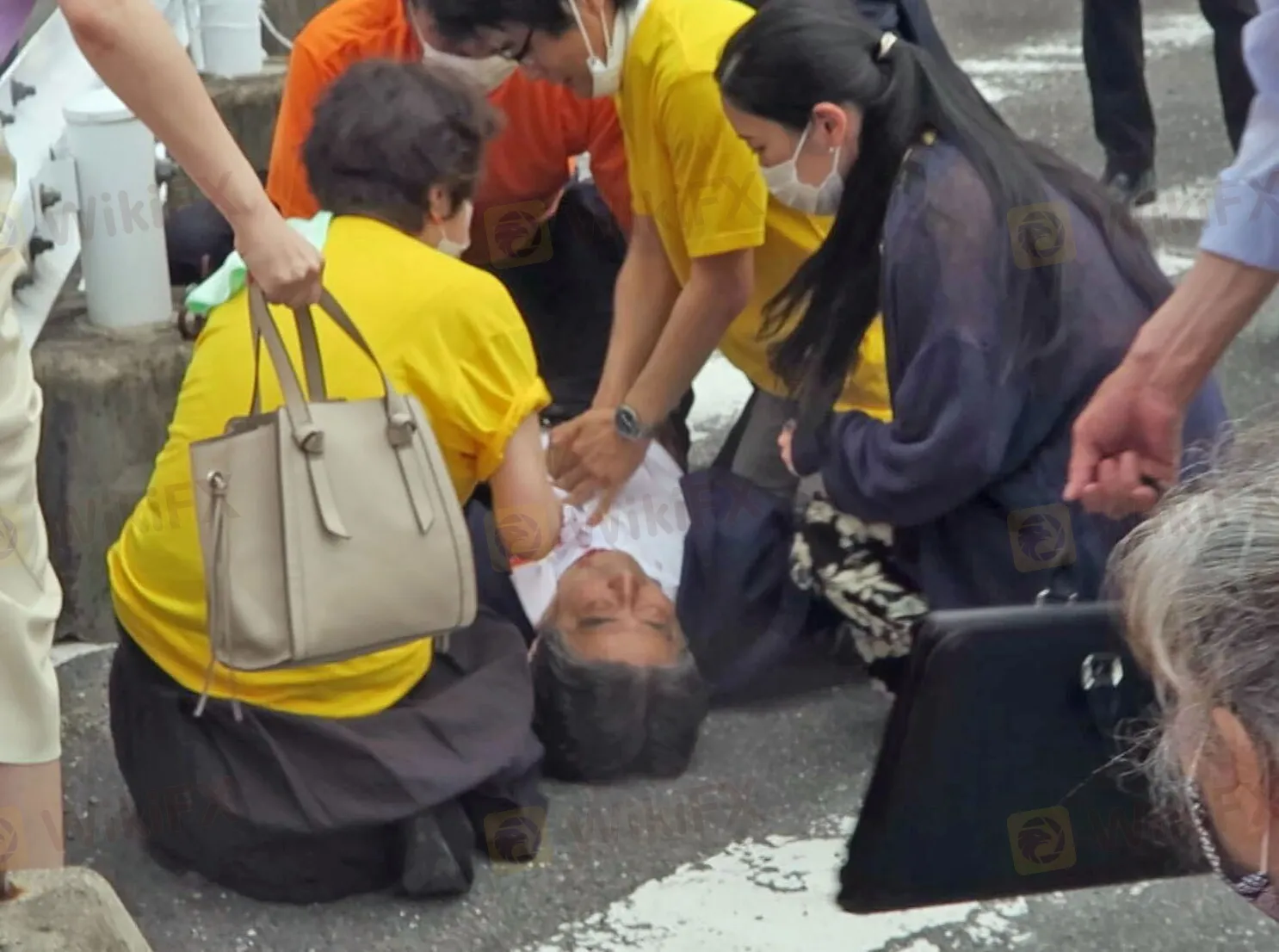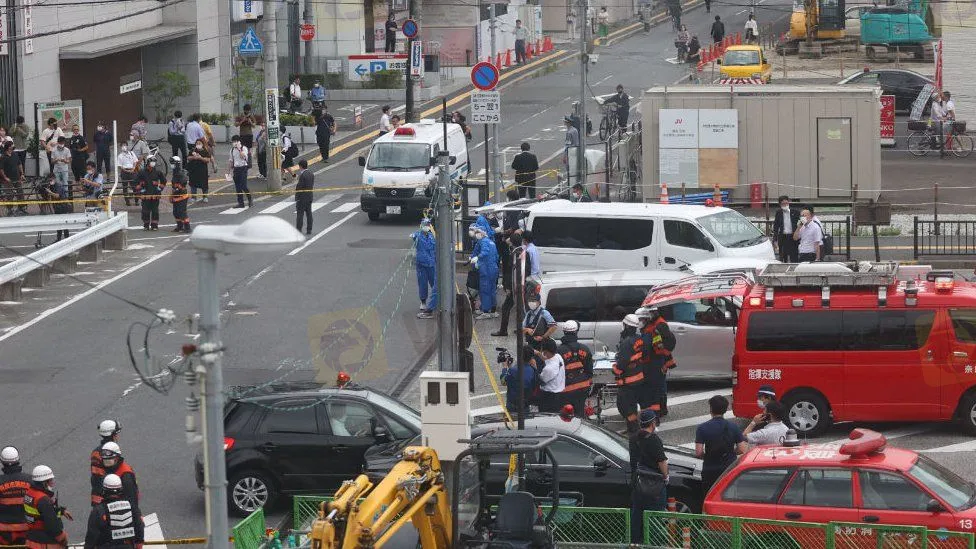Abstract:He instantly lost consciousness and was taken to the closest hospital. Photos obtained on the site revealed that he was bleeding.
According to local media, Japan's former prime leader Shinzo Abe passed away in the hospital after being shot at a political gathering.
On Friday morning in the southern city of Nara, Mr. Abe received two gunshot wounds.
He instantly lost consciousness and was taken to the closest hospital. Photos obtained on the site revealed that he was bleeding.
The shooter was subdued by security personnel present at the site, and the 41-year-old suspect is now in police custody.
The incident was denounced by Prime Minister Fumio Kishida in an emotional news conference earlier, who said: “It is savage and nasty and it cannot be condoned.”
Mr. Abe experienced subcutaneous hemorrhage beneath the left side of his chest as well as a gunshot wound on the right side of his neck, according to prior confirmation from the Fire and Disaster Management Agency.

It's unclear whether he was struck by both bullets or if one struck his neck before moving to another part of his body.
Minutes after the incident, Mr. Abe was claimed to be alert and responding, but the 67-year-condition old's gradually worsened and he required a blood transfusion at a hospital, according to sources.
Witnesses describe seeing a guy with a big gun.
When the incident occurred, Mr. Abe was in Nara delivering a campaign speech for a political candidate at a traffic light.
Witnesses claimed to have seen a guy fire twice at Mr. Abe from behind while holding what they characterized as a heavy gun.
Security personnel apprehended the assailant, who made no effort to flee and took his allegedly homemade pistol into custody.
Tetsuya Yamagami, a resident of Nara, has been named as the suspect. He is reportedly said to have served in Japan's Maritime Self-Defense Force, which is the country's version of the navy.
As elections for Japan's upper house are slated for later this week, Mr. Abe's speech was part of a Liberal Democratic Party campaign.
Later, according to local accounts, ministers around the nation received instructions to return right away to Tokyo.
The hashtag “We want democracy, not violence” was trending on Japanese social media, with many users expressing their anger and outrage at the occurrence.
What kind of gun was used, and how did the shooter get his or her hands on it, would likely be the first questions on many people's minds.
It would seem that he may have constructed it himself as the solution. Photos acquired during the suspect's capture reveal what seems to be a homemade or improvised double-barrelled shotgun.
Gun violence is exceedingly uncommon in Japan, and it is incredibly challenging to get a gun. Political violence is also quite uncommon.
There was a security police squad accompanying Mr. Abe. However, it seems the gunman was still able to approach Mr. Abe within a few meters without any kind of check or barrier.
In a nation that takes great pride in its high level of safety, the shooting of such an important man is very disturbing.
The longest-serving prime minister in Japan, Mr. Abe served in that position from 2006 to 2020 and again from 2012 to 2020 before resigning due to health concerns.
He then admitted that he had had a return of the bowel condition ulcerative colitis.
He promoted aggressive military and foreign policy positions while in power and has long tried to change Japan's pacifist post-war constitution.
Additionally, he promoted the “Abenomics” economic program, which was based on structural reforms, fiscal stimulus, and monetary easing.
the hawk who gave the term “Abenomics” its name
He was followed by Yoshihide Suga, a close party friend, who was then succeeded by Fumio Kishida.

A “deplorable attack”
In Japan, where the possession of firearms is illegal, gun violence is unusual, and political violence is almost nonexistent.
In 2014, just six people were killed by firearms in Japan, compared to 33,558 in the United States. Even after completing rigorous physical and mental health examinations, only shotguns and air rifles may be purchased.
The event was promptly denounced by influential individuals throughout the globe. British Prime Minister Boris Johnson referred to the incident as a “despicable assault.”
According to US ambassador to Japan Rahm Emanuel, Mr. Abe has been a “great leader of Japan and committed ally of the US,” and the US is “praying” for his health.
According to Zhao Lijian, a spokesperson for China's Ministry of Foreign Affairs, his country was appalled by the occurrence and wished Mr. Abe a speedy recovery.
When questioned about the response on Chinese social media, he stressed that “this unforeseen situation should not be related to Sino-Japanese ties” and declined to comment more.
Social media in China and Korea have been dominated by comments gloating over the assault on Mr. Abe.
Japan, China, and South Korea have had tense and convoluted historical connections. Known for his military hawkishness, Mr. Abe was unpopular with the people of both nations when he served as president.
Visit WikiFX news for more updates











